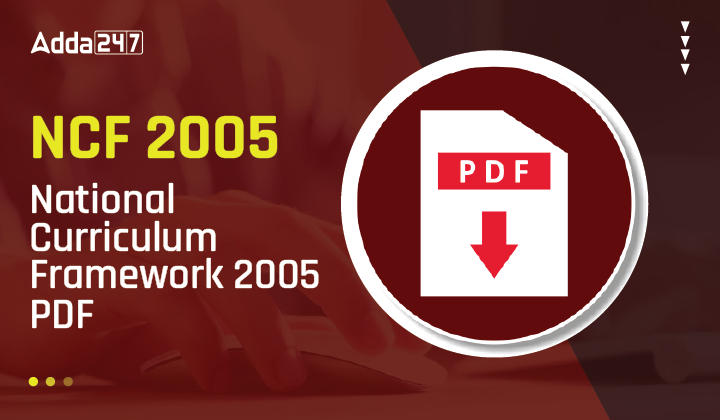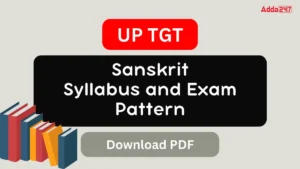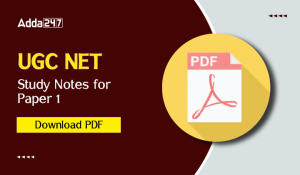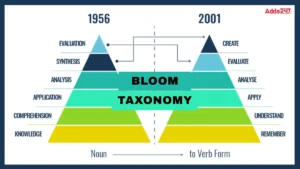Table of Contents
NCF 2005 – National Curriculum Framework 2005 is a crucial topic in Child Development and Pedagogy (CDP) for various teaching recruitment exams, including UGC NET, CTET, HTET, KVS and others. As teaching exams are becoming more frequent, thorough preparation for this section is essential for aspirants.
The NCF 2005 is relevant across all levels of subject pedagogy, including primary, upper primary, and higher education. This study note on National Curriculum Framework 2005 will aid candidates in enhancing their understanding and preparation for teaching exams, ensuring they are well-prepared for this important section.
National Curriculum Framework 2005
The National Council of Educational Research and Training (NCERT) plays a pivotal role in providing technical resource support for school education. The NCERT charter emphasizes the importance of curriculum design, with the organization tasked with regularly reviewing the school curriculum to ensure high educational standards.
The National Policy on Education (NPE), 1986, and the Programme of Action (POA), 1992, assign a special responsibility to NCERT in developing and promoting the National Curriculum Framework. The NPE views this responsibility as a means to establish a unified national system of education that upholds core values and goals, addressing the evolving needs of children and society, while staying within the framework of the Indian Constitution.
NCF 2005 PDF – Highlights
The National Curriculum Framework (NCF) 2005 was chaired by Prof. Yash Pal and developed by a committee of 35 members, including scholars from various disciplines, principals, teachers, representatives from prominent NGOs, and NCERT members. Published by the National Council of Educational Research and Training (NCERT), it is the 4th edition in the series, following the NCFs of 1975, 1988, and 2000. Subsequent frameworks after NCF 2005 include NCF 2009 and NCF 2014. The framework, developed under the Union Ministry of Education, Government of India, serves as a guide for the syllabus, textbooks, and teaching practices in Indian schools.
| NCF 2005- Highlights | |
| Full name | National Curriculum Framework 2005 |
| Chairperson | Prof. Yash Pal with 35 members including scholars from different disciplines, principals, and teachers, representations of well-known NGOs, and members of NCERT. |
| Published by | National Council of Educational Research and Training (NCERT) |
| Series | 4th National Curriculum Framework |
| Before NCF 2005 | NCF 1975, NCF 1988, NCF 2000 |
| After NCF 2005 | NCF 2009, NCF 2014 |
| Ministry concerned | Union Education Ministry, Gov. of India |
| Purpose | To serve as a guideline for syllabus, textbooks, and teaching practices for schools in India |
NCF 2005 Committee
A national steering committee was set up under the chairmanship of Prof. Yash Pal eminent Scientist and Scholar. The committee comprised 35 members including scholars from different disciplines, principals, and teachers, representations of well-known NGOs and members of NCERT. Its work was supported by 21 National Focus Group, coursing major areas of curriculum national concerns and systematic issues.
Needs of NCF 2005
To make education fulfil its aims, the following needs to frame a national curriculum:
- The national system of education will be based on a national curriculum framework, which contains a common core along with other components that are flexible.
- To frame a curriculum as a means of evolving a national system of education capable of responding to India’s cultural and geographical diversity ensuring a common core of values along with academic components
- To modernise the system of education.
- To have a relevant, flexible and relevant curriculum.
Objectives of NCF 2005
- The curriculum should be child-centred.
- It should provide a fullness of experience for students.
- It should make provisions for flexibility within the framework of acceptable principles and values.
- The curriculum should be related to the life needs and aspirations of the people.
- Develop a rational outlook.
- The curriculum should lay emphasis on SUPW.
- It should be able to promote social justice, democratic values and national integration.
- It should help in self-experience and expression and in physical development.
- It should be well integrated.
- It should provide continuity in the whole programme.
NCF 2005 Merits
The NCF 2005 has the following merits attached to it :
- Its approach and recommendations are for the entire system. A number of its recommendations, in fact, focus on rural schools.
- The framework has taken note of the swiftly changing environment and the need to integrate the essential changes in the curriculum.
- It established a rationale for using technology as a tool and an enabler in the teaching-learning environment.
- The framework has placed the onus, on teacher education for curriculum renewal in school education.
- The document paves the way for learning without burden.
- It promotes the theory of inclusive education, which will in a way help to level the inequalities in the social system.
- Decentralisation of educational planning and administration has been emphasised.
- It recommends the softening of the subject boundaries so that children can experience the joy of understanding and have integrated knowledge.
- The document comes across as a liberal document because it was for the first time this document looked at 21 especially produced positions par pers on different issues.
NCF 2005 Demerits
The framework suffered the following demerits or limitations:
- It is argued that the document is not sufficiently announced which has led to its incomplete implementation.
- Implementing the suggested curriculum would require a huge infrastructure.
- The framework does not state the academic, social and political context in which it is framed.
- It does not talk about the dangers of community participation and how to ensure the quality of education in such an environment.
- It is unrealistic to project constructivism as the universal pedagogy for all subjects and for children of all ages.
- The suggested examination reforms of all ages would lead to a replacement of one form of evaluation with another. Rather the meaning of assessment should be explained to teachers.
NCF 2005 PDF Notes
Candidates preparing for Teaching Exams can easily access the NCF 2005 Notes PDF file from the link provided below. They can refer to the PDF as a reference during preparation and most importantly during revisions.




 UP TGT Sanskrit Syllabus and Exam Patter...
UP TGT Sanskrit Syllabus and Exam Patter...
 UGC NET Study Notes for Paper 1, Downloa...
UGC NET Study Notes for Paper 1, Downloa...
 Bloom Taxonomy, Purpose, Domains, Exampl...
Bloom Taxonomy, Purpose, Domains, Exampl...




